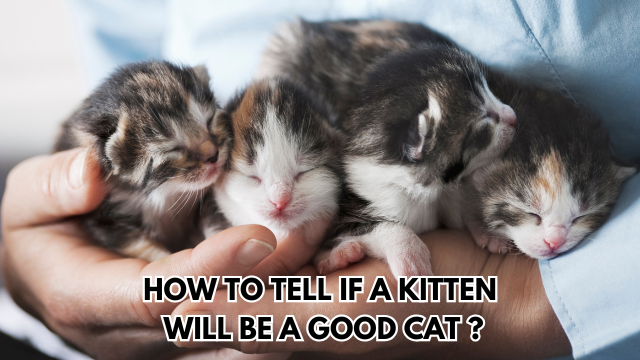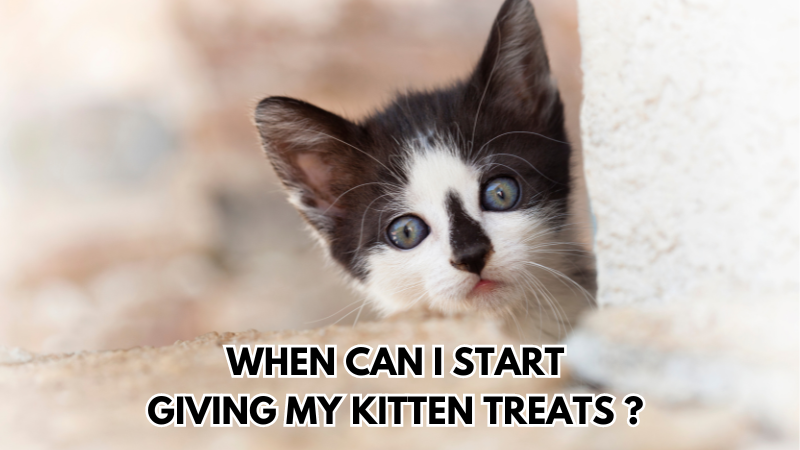It can be tricky, especially for new cat owners, to figure out what their little furball needs. So, let’s go over some key signs to help you understand when your kitten is hungry and when they might just be in the mood for something else.
What are the Signs that a Kitten is Hungry ?
1. Constant Meowing or Vocalization
One of the first signs that your kitten might be hungry is increased vocalization. While all cats have different personalities, many kittens will meow or cry when they’re feeling hungry.
You might notice this particularly around feeding times, as they begin associating your movements with food.
If your kitten seems to be making more noise than usual, take note of the time and check if they are due for a meal.
According to PetMD, persistent meowing, especially if it’s a high-pitched and demanding sound, can often be a clear sign of hunger.
However, it’s important to note that not every meow means hunger.
Some kittens are naturally chatty, and they may meow just for attention or because they’re bored.
Over time, you’ll likely start to recognize your kitten’s different meows and what each one means.
2. Pacing Around the Feeding Area
If your kitten is constantly hanging around their feeding area—whether it’s their food bowl or where you usually keep their food—it’s a strong indication they’re hungry.
Cats, even at a young age, are creatures of habit and routine. If they’re pacing around their bowl or sitting near it and looking at you expectantly, they may be telling you it’s time for a meal.
Based on expert advice from The Humane Society, kittens tend to become fixated on places associated with food, especially when their stomachs are growling.
If your kitten keeps returning to the kitchen or wherever their food is kept, it could be their way of saying, “I’m ready to eat!”

3. Licking Their Lips or Chewing on Objects
Another sign that your kitten might be hungry is if they start licking their lips or even chewing on random objects.
While this behavior can sometimes indicate that your kitten is exploring or teething, it’s also common in hungry kittens who are trying to relieve the feeling of an empty stomach.
If your kitten starts chewing on things they shouldn’t—like furniture, toys, or even your fingers—it could be a sign that they’re hungry.
According to Cats Protection, lip licking or chewing behavior can be related to a kitten’s need for food, and this behavior often ramps up when mealtime is approaching.
4. Attention-Seeking Behavior
Kittens are naturally curious and affectionate, but if you notice that your kitten is more clingy or demanding than usual, they might be trying to get your attention because they’re hungry.
Kittens can associate their humans with food, and they’ll often nuzzle, rub against you, or follow you around when they’re looking for their next meal.
If your kitten is underfoot every time you head to the kitchen, there’s a good chance they’re trying to remind you that they’re hungry.
According to The Spruce Pets, kittens quickly learn that their humans are the source of food and will seek attention when they’re feeling peckish.
5. Restlessness or Increased Activity
Hunger can make a kitten more restless, especially if they’ve already been playing or exerting energy.
Kittens burn through calories quickly, so it’s not uncommon for them to get hungry after a good play session.
If your kitten seems to be unusually restless or active, it could be a sign that they need to refuel with some food.
According to VCA Animal Hospitals, kittens require more frequent meals than adult cats, and their increased energy levels often signal that they need a snack.
If your kitten has been running around like crazy and then suddenly becomes restless or irritable, it might be time to offer them some food.
6. Scratching at the Food Bowl or Cupboards
If your kitten is scratching at their food bowl or the cupboard where you keep their food, it’s a very obvious sign they’re hungry.
Kittens often use physical cues to signal their need for food, and this is one of the clearest indicators.
Watch for your kitten pawing at the food bowl or attempting to get into places where you store their meals.
Based on expert insights from Kitten Lady, kittens are clever creatures and will quickly figure out where their food is kept. Scratching or pawing at these areas can be their way of demanding that dinner is served.

7. Reduced Energy and Lethargy
While we often think of hunger making kittens more active, the opposite can also be true.
If your kitten hasn’t eaten for a while, they might become lethargic or less energetic than usual. Just like humans, kittens can get “hangry,” and if they don’t get food in time, they may become sluggish.
If your kitten suddenly seems more tired than usual or uninterested in play, it could be a sign they’re running low on energy and need a meal to perk up.
According to Catster, maintaining regular feeding schedules is important to prevent this kind of energy drop and to keep kittens healthy and active.
8. Weight Loss or Skinniness
If your kitten consistently seems hungry and you notice they’re losing weight or looking skinny, it’s crucial to adjust their feeding routine.
Kittens grow quickly, and they need a steady intake of food to support that growth. If they’re not getting enough, they may start to lose weight, which is a serious health concern.
PetMD warns that weight loss in kittens can be a sign that they’re not getting enough nutrients, so if your kitten always seems hungry and isn’t gaining weight, it’s important to consult your vet.
They can help you determine the proper feeding schedule and portion sizes based on your kitten’s age and breed.
How to Feed Your Kitten Properly
Now that you know the signs that your kitten is hungry, it’s important to feed them correctly to keep them healthy and happy.
Here are some practical tips for feeding your kitten:
- Feed them small, frequent meals: Kittens need more frequent meals than adult cats. Typically, they should eat 4 to 5 small meals throughout the day. This helps them maintain their energy levels and supports their rapid growth.
- Choose the right food: Make sure you’re feeding your kitten food specifically formulated for kittens. Kitten food has higher levels of protein and nutrients that are essential for their development.
- Stick to a routine: Try to feed your kitten at the same times every day. Kittens thrive on routine, and having regular feeding times can help prevent excessive hunger.
Bonus Tip: Be Careful with Overfeeding
While it’s important to make sure your kitten gets enough food, be mindful not to overfeed them.
Some kittens can become overweight if given too much food or too many treats.
Keep track of your kitten’s portion sizes and adjust them as they grow. If you’re unsure how much to feed, consult your vet for advice on proper portion control.
Read: 10 Common Mistakes New Kitten Owners Make
Recognizing when your kitten is hungry is key to keeping them healthy and happy.
Whether it’s through constant meowing, pacing near the food bowl, or chewing on random objects, your kitten will likely give you clear signs that it’s time for a meal.
By paying attention to these cues and following a proper feeding routine, you can ensure that your kitten gets the nutrition they need to grow into a strong, healthy cat.
Remember, every kitten is unique, so take time to understand their individual needs and behaviors when it comes to hunger.
And always consult with your vet if you’re unsure about their feeding habits or if you notice any concerning signs like weight loss or lethargy.***
Watch Videos about Cat & Kitten Care on Youtube @naowthecat